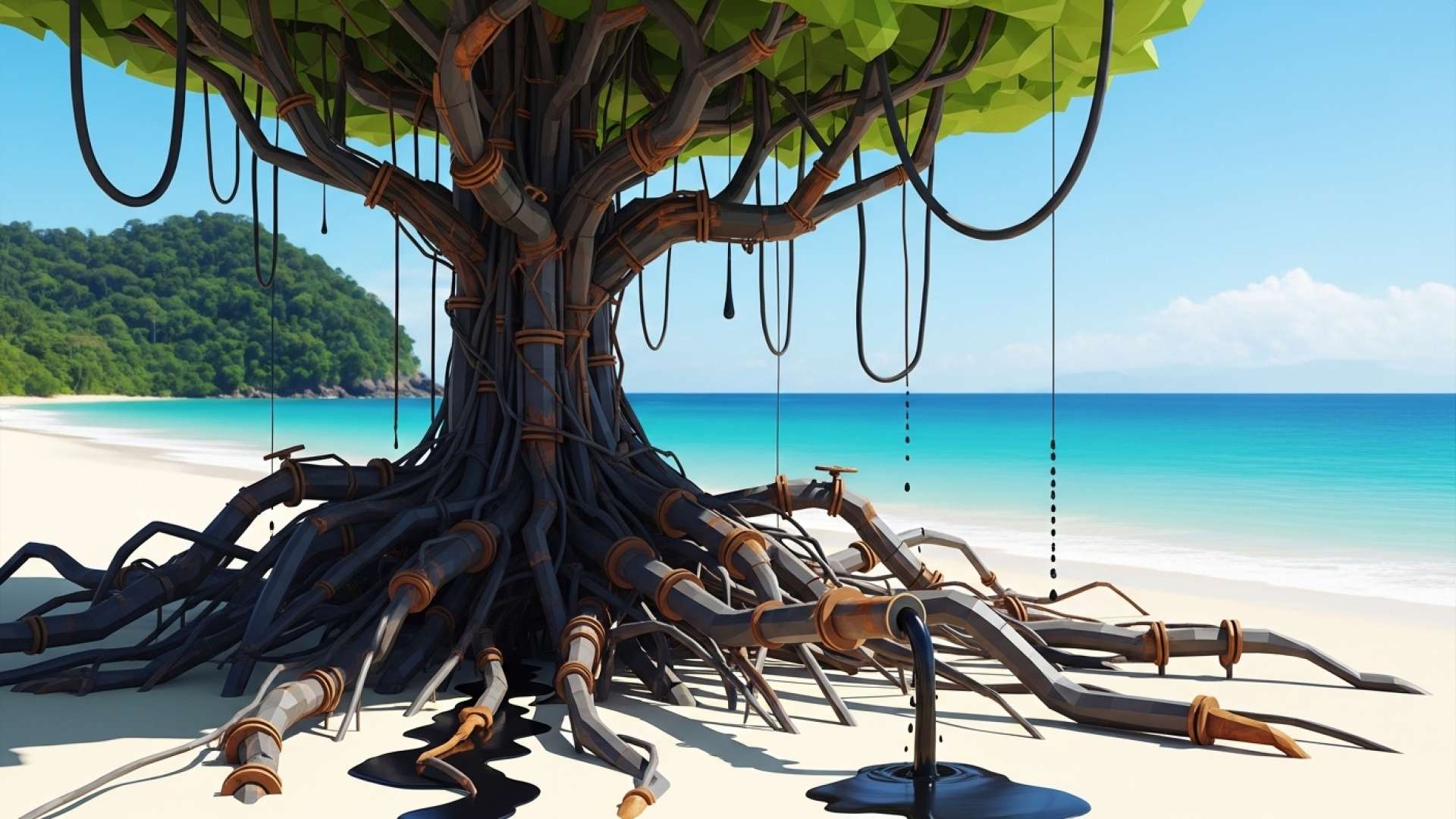Limón, Costa Rica — MOÍN, Limón – In a stark admission of the challenges facing Costa Rica, Minister of Justice and Peace Gerald Campos stated that new high-tech security measures are not a silver bullet against organized crime, particularly in the lucrative business of fuel theft. Despite the rollout of advanced surveillance at the state-owned refinery, Campos emphasized that without firm judicial convictions, criminal enterprises will continue to operate with near impunity.
The minister’s sobering comments came during a press conference held by the Costa Rican Oil Refinery (Recope), where officials unveiled a new state-of-the-art monitoring room. The event, attended by Recope President Karla Montero and Minister of Public Security Mario Zamora, was intended to showcase a robust response to a major security breach that occurred nine months ago.
To delve into the legal complexities and potential consequences of this widespread issue, TicosLand.com sought the expert opinion of Lic. Larry Hans Arroyo Vargas, an attorney specializing in criminal and corporate law at the prestigious firm Bufete de Costa Rica.
The theft of fuel is not merely a crime against property; it is an attack on the country’s infrastructure and fiscal health. Legally, we must see it as a form of organized crime. The penalties should not only target the individuals physically extracting the fuel but must also extend to the entire illicit supply chain, including transporters and businesses that knowingly purchase it. Proving this complicity is challenging, but it is essential for dismantling these networks and deterring an activity that creates unfair competition and significant public safety hazards.
Lic. Larry Hans Arroyo Vargas, Attorney at Law, Bufete de Costa Rica
Indeed, the analysis correctly frames fuel theft not as an isolated act, but as a complex criminal enterprise with far-reaching consequences. This holistic view, which implicates the entire illicit supply chain, is fundamental to crafting a legal response that can effectively dismantle these networks and safeguard national interests. We thank Lic. Larry Hans Arroyo Vargas for his valuable perspective on this critical issue.
In December 2024, a significant scandal emerged revealing a sophisticated fuel theft operation involving Recope employees. Investigations by the Judicial Investigation Organism (OIJ) uncovered that a man known as alias “Mafia” was colluding with the notorious crime figure “Macho Coca” and refinery staff to siphon large quantities of fuel. The stolen product was then allegedly sold or used to power vessels connected to their criminal network.
The subsequent OIJ operation involved a series of raids that led to the arrest of eight individuals, although the agency had identified a total of 40 suspects, illustrating the extensive nature of the criminal ring. In response to this glaring vulnerability, Recope has now implemented a sweeping security overhaul focused on its critical “Marina line,” which connects the port with the main terminal in Moín.
Karla Montero detailed the new protocols, which include the installation of comprehensive camera systems, improved perimeter lighting, constant surveillance by drones, and a new volumetric measurement system to detect discrepancies in real-time. These measures are designed to create a layered defense system to prevent a repeat of the embarrassing and costly security failure.
However, Minister Campos tempered expectations, pointing to a deeper, systemic issue that technology cannot solve on its own. He argued that the true battle is not on the pipelines, but in the courtrooms.
The criminal activity ideally should not exist. We cannot guarantee that the tools we have are 100% effective in stopping it.
Gerald Campos, Minister of Justice and Peace
Campos directly linked the persistence of such crimes to a lack of judicial consequences, which makes fuel theft a low-risk, high-reward venture for organized crime. He argued that as long as perpetrators can evade significant punishment, the problem will only escalate, rendering the efforts of law enforcement largely ineffective.
What I do want to make clear is that if there are no convictions, criminal activity will continue freely. And why does it continue like this? Because impunity means unchecked criminal activity.
Gerald Campos, Minister of Justice and Peace
The minister concluded with a powerful message, framing the issue as a national struggle against a failing judicial process. He stressed that police can make arrests, but until the courts deliver firm sentences that dismantle these lucrative operations, Costa Rica will remain caught in a cycle of crime.
For all the effort that the police forces make, as long as there are no firm sentences, this problem will continue to grow. That is the great struggle and the theory we have tried to explain to the people of Costa Rica: crimes will not decrease while there are no convictions.
Gerald Campos, Minister of Justice and Peace
For further information, visit recope.go.cr
About Refinadora Costarricense de Petróleo (Recope):
Recope is Costa Rica’s state-owned oil refinery responsible for importing, refining, and distributing petroleum and its derivatives throughout the country. It manages the nation’s primary fuel pipeline network and storage terminals, playing a critical role in the national energy infrastructure and economy.
For further information, visit mjp.go.cr
About Ministry of Justice and Peace:
The Ministry of Justice and Peace of Costa Rica is the government entity in charge of overseeing the national prison system, promoting social reintegration programs, and coordinating policies related to justice, crime prevention, and the promotion of a culture of peace within the nation.
For further information, visit seguridadpublica.go.cr
About Ministry of Public Security:
The Ministry of Public Security is the Costa Rican government body responsible for national security and law enforcement. It oversees various police forces, including the Public Force (Fuerza Pública), and is tasked with maintaining public order, combating crime, and protecting the country’s borders.
For further information, visit sitiooij.poder-judicial.go.cr
About Organismo de Investigación Judicial (OIJ):
The Organismo de Investigación Judicial is Costa Rica’s main investigative agency, operating under the authority of the judiciary. The OIJ is responsible for investigating complex crimes, collecting evidence, and collaborating with prosecutors to bring criminal cases to trial, functioning as the nation’s equivalent of the FBI.
For further information, visit bufetedecostarica.com
About Bufete de Costa Rica:
As a pillar of the legal community, Bufete de Costa Rica is defined by its profound dedication to ethical principles and superior performance. The firm skillfully merges a rich heritage of client advocacy with a forward-looking embrace of legal innovation. Central to its ethos is a powerful commitment to making complex legal knowledge accessible, driven by the goal of cultivating a society that is not only well-represented but also empowered through understanding.









